
Rusfertide keeps hematocrit under 45% and prevents phlebotomy for most patients with polycythemia vera through 52 weeks of treatment.

Rusfertide keeps hematocrit under 45% and prevents phlebotomy for most patients with polycythemia vera through 52 weeks of treatment.

CURE was on site at the 2025 ASH Annual Meeting, sharing expert conversations and patient-focused reporting that highlighted progress in blood cancer care.

At the 2025 ASH Annual Meeting and Exposition, researchers presented new findings that may meaningfully affect how patients with blood cancers are treated.

Emmy-winning journalist and author Suleika Jaouad recently delivered the keynote address at the inaugural Blood Cancer Heroes celebration.

CURE spoke with Dr. Dickran Kazandjian about why MRD matters for patients with multiple myeloma.

Nuvisertib plus momelotinib is safe and generated improvements in symptom burden, spleen volume, and anemia outcomes in relapsed/refractory myelofibrosis.

Emmy-winning journalist and author, Suleika Jaouad, delivered the keynote address at the inaugural Blood Cancer Heroes event.
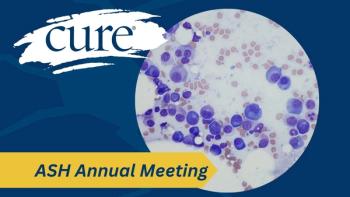
KLN-1010 was associated with deep, ongoing minimal residual disease (MRD)–negative responses in multiple myeloma.

Real-world treatment with Yescarta demonstrated durable responses and manageable safety in patients with relapsed/refractory follicular lymphoma.

Dexamethasone before Yescarta reduced the severity of ICANS but did not change how often ICANS or CRS occurred in patients with LBCL.

Pelabresib plus Jakafi delivered stronger, clinically meaningful benefits versus Jakafi alone for people with untreated myelofibrosis.

Tecvayli plus Darzalex Faspro improved overall and progression-free survival versus standard daratumumab regimens in relapsed/refractory multiple myeloma.

Jaypirca therapy improved progression-free survival versus bendamustine plus Rituxan a phase 3 trial for untreated CLL/SLL.

Lore Gruenbaum, chief scientific officer of Blood Cancer United, sat down for an interview with CURE to discuss the themes shaping blood cancer care today.

Dr. Josh Brody discussed key clinical trial findings for patients with diffuse large B-cell lymphoma.

Xervyteg improved responses and was safe in steroid- and Jakafi-resistant acute graft-versus-host disease affecting the GI tract in a phase 3 trial.

In a direct comparison, Jaypirca matched Imbruvica in response and suggested a progression-free survival benefit for patients with CLL/SLL.

Dr. Robert Orlowski says a single-drug option in newly diagnosed myeloma may offer strong responses with fewer side effects and preserve future treatments.

A clinical trial found that Jaypirca was more effective than Imbruvica across the frontline and relapsed/refractory CLL/SLL settings.

The phase 3 EPCORE FL-1 trial showed that adding Epkinly to Rituxan and Revlimid delivered superior PFS and response rates.
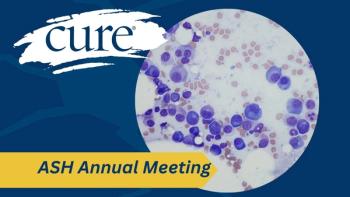
A new combination of Blincyto and Iclusig provided improved results and stronger responses for patients with Philadelphia chromosome-positive ALL compared with traditional chemotherapy.
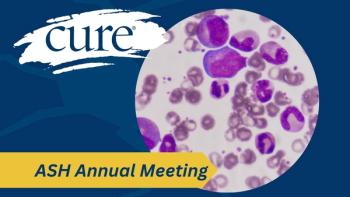
Among fit patients with acute myeloid leukemia, azacitidine plus Venclexta was shown to be superior to intensive chemotherapy.
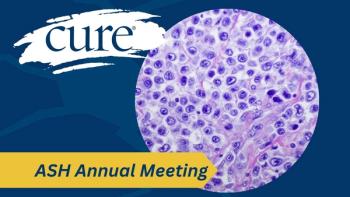
Among older patients with newly diagnosed diffuse large B-cell lymphoma (DLBCL), Epkinly plus R-mini-CHOP appeared to be well tolerated and elicited responses.

Transitioning treatment with Niktimvo to a dose of 0.6 mg/kg every four weeks appeared feasible for chronic graft-versus-host disease.

Race has been identified as an independent prognostic factor in patients with AML receiving intensive chemotherapy.
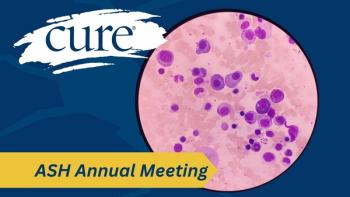
KRd improved progression-free survival, deepened responses, and led to higher MRD negativity versus VRd in patients with newly diagnosed multiple myeloma.

Real-time text check-ins helped physicians identify issues sooner and support quality of life for patients with myeloma at ASH 2025.

In patients with R/R multiple myeloma, real-world Elrexfio was associated with shorter time until progression but higher rates of response than Tecvayli.

Venclexta regimens showed comparable progression-free survival versus continuous Imbruvica.

For pediatric and young adult patients with B-cell acute lymphoblastic leukemia, removal of total body irradiation did not compromise efficacy.